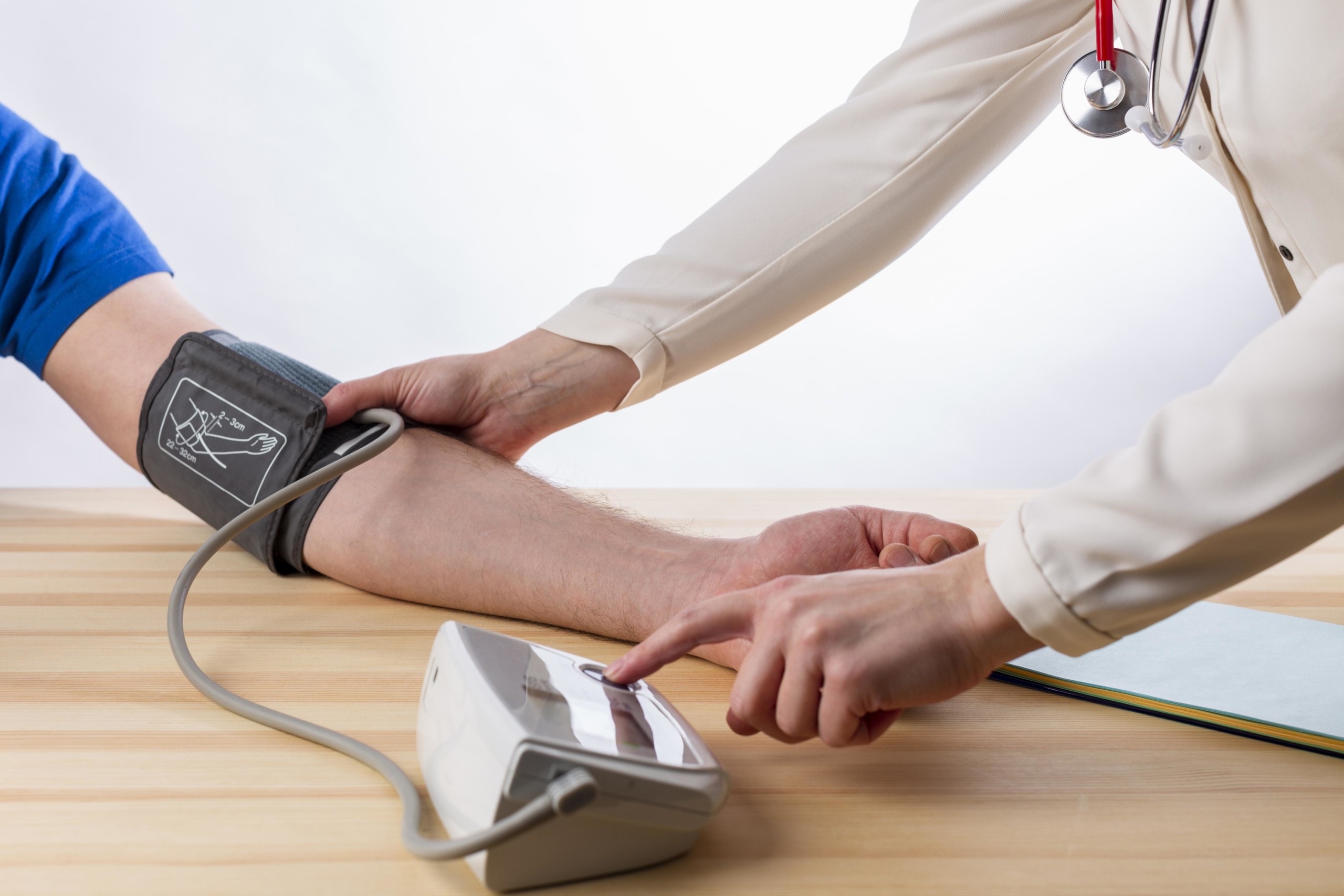AMBULATORY BLOOD PRESSURE
About Ambulatory BP?
Ambulatory Blood Pressure Monitoring (ABPM) is when your blood pressure is measured as you move around, living your normal daily life. It is measured for up to 24 hours. A small digital blood pressure monitor is attached to a belt around your waist and connected to a cuff around your upper arm. It is small enough not to affect your normal daily life and you can even sleep with it on

Why Does Your Cardiologist Advised Ambulatory BP?
There are a number of reasons why we might need this:
- To establish a diagnosis of high blood pressure (hypertension)
- To identify patients who have higher blood pressure readings when in the clinic (known as ‘white coat effect’)
- To help decide if blood pressure medication is required
- To help to decide whether any change to your medication is required
- To further investigate people whose blood pressure is hard to control
- To see how well a patient’s blood pressure medicines are controlling blood pressure throughout the day
- To see what happens to a patient’s blood pressure at night
Turnaround Time for the Report
After the 24-hour monitoring period, it typically takes around a day or two to compile the results and get them to your cardiologist. They’ll review the findings and discuss them with you, ensuring you understand what the numbers and data mean for your heart health. So, not a long wait—it’s quick enough to put your mind at ease or start any necessary action.
Things to Know Before the Test
Before going for the test, it’s crucial to share any existing health conditions or medications you’re currently taking with your cardiologist. Also, if you’ve noticed any strange symptoms lately, it’s important to highlight that to your cardiologist. This helps in getting an accurate assessment of your heart health.
- Health Condition and Medications: Inform your cardiologist about any existing health conditions or medications you’re currently taking. This includes prescription drugs, over-the-counter medications, and supplements. Certain medications can influence blood pressure, so it’s crucial for your doctor to have a comprehensive understanding.
- Symptoms and Concerns: If you’ve been experiencing any unusual symptoms related to your heart health, like chest discomfort, dizziness, or irregular heartbeats, make sure to discuss these with your cardiologist. Providing detailed information about these symptoms helps in making the test more accurate and aids in a precise diagnosis.
- Activity and Routine: Since the test lasts for 24 hours, it’s essential to carry on with your normal routine during this time. Try to maintain your regular activities and avoid altering your lifestyle for the test, as this provides a natural reflection of your blood pressure in different scenarios.
- Clothing Choice: Wear comfortable clothing on the day of the test, ensuring that the sleeve can easily accommodate the BP monitor cuff. Loose-fitting clothes can be more convenient, allowing the monitor to function without any restrictions.
- Activity Diary (if requested): Some healthcare providers might ask you to keep a diary of your activities and symptoms during the monitoring period. This diary helps in correlating the recorded blood pressure readings with your daily activities and symptoms, providing your doctor with more context.
Know the Procedure
- Preparation: You’ll visit the clinic, where a healthcare professional will set you up with a small monitor connected to a cuff that fits around your arm. They’ll ensure the monitor is securely in place and comfortable for the 24-hour period.
- Regular Activities: Once the monitor is set up, you’ll continue with your regular routine. This is the beauty of the test – you carry on with your daily life, and the monitor quietly does its job, measuring your blood pressure at set intervals.
- Activity Diary: Some clinics may ask you to maintain an activity diary, noting down specific activities or symptoms experienced during the monitoring period. This record can provide additional context for the cardiologist when interpreting the results.
- Monitor Removal: After the 24-hour period is up, you’ll return to the clinic to have the monitor removed. The data collected will then be analyzed by your cardiologist.
Our Serviceable Area
Care Heart Centre lead by Dr Gaurav Minocha is conveniently located and serves multiple areas of east Delhi, including Preet Vihar, Karkarduma, Anand Vihar, Nirman Vihar, Kaushambi, Vaishali, Ghaziabad, Sahibabad Sector 63, Hargovind Enclave, and neighboring regions. Our aim is to provide easy access to essential cardiac services for individuals residing in East Delhi.
Those who are looking for undergoing Ambulatory BP and looking for consultations with the best cardiologist in East Delhi, you can visit the Care Heart Centre or call us on +91875059000. Your heart health matters, and we are dedicated to supporting your well-being.
Best Cardiologist in Delhi NCR
25+ Years of experience in the field of cardiology and internal medicine.
